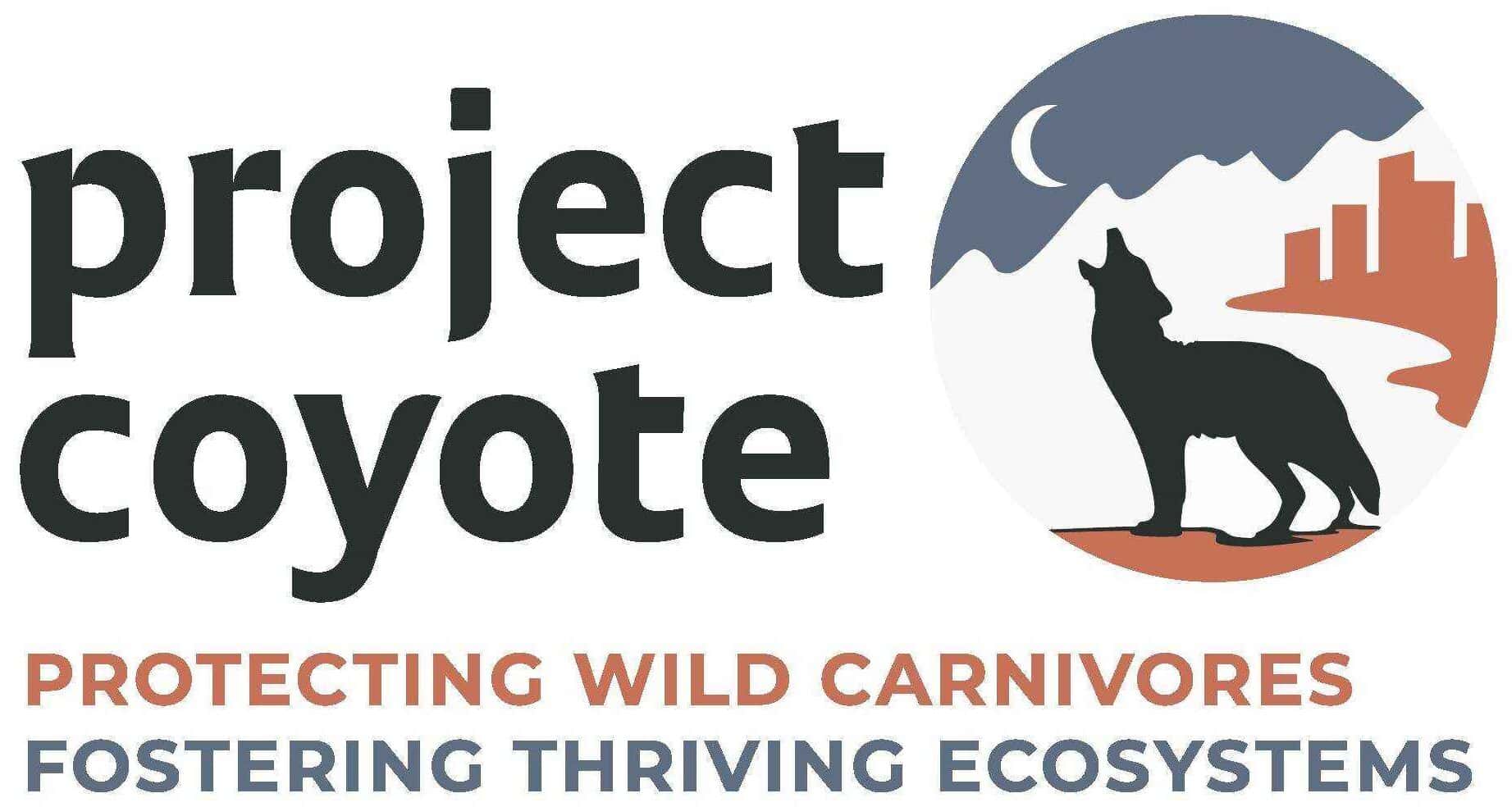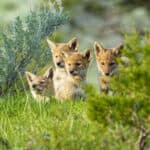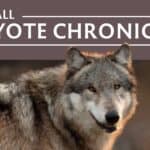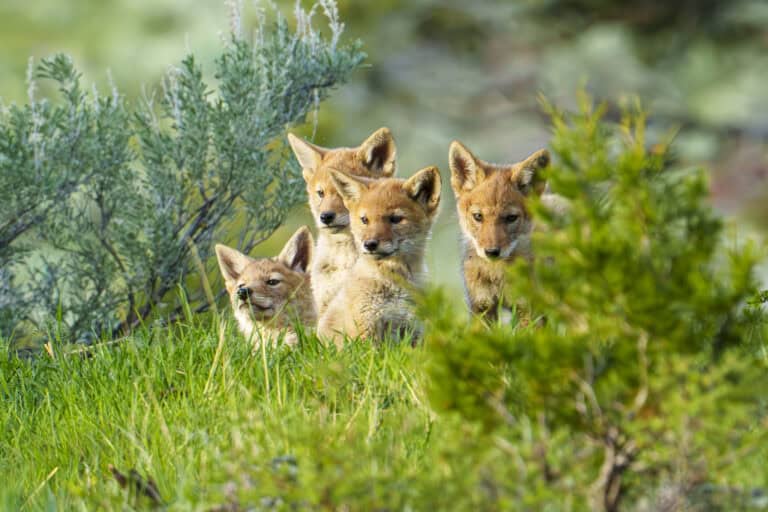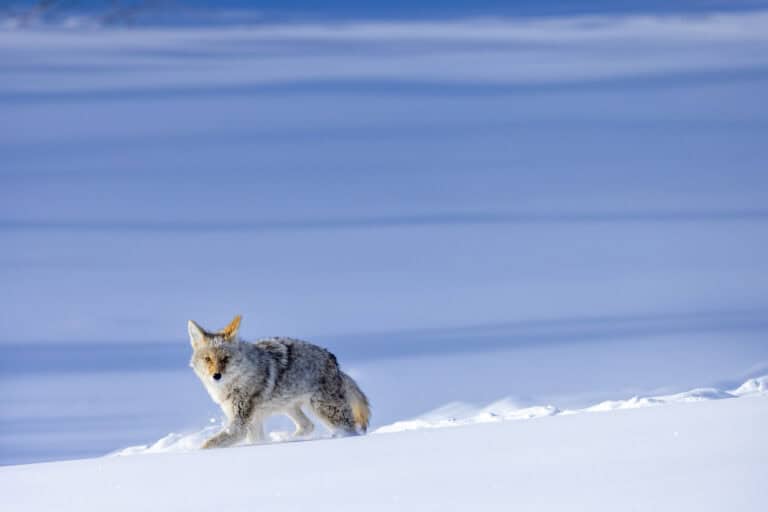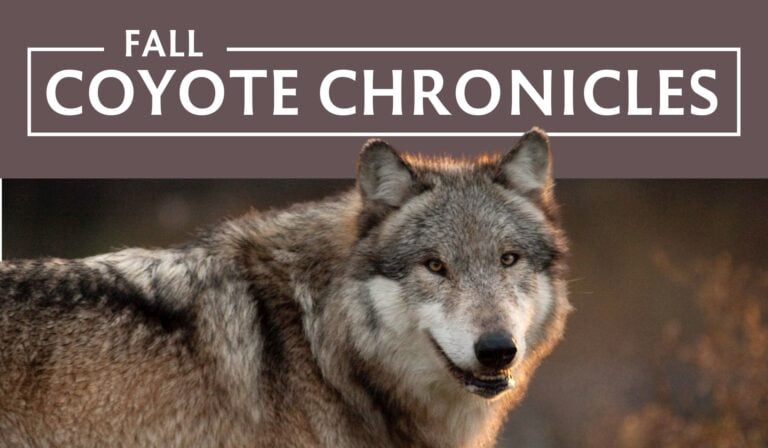MARCH 2021 IN THIS ISSUE:
Never doubt that a small group of thoughtful, committed citizens can change the world; indeed, it’s the only thing that ever has.
~Margaret Mead
I’m excited to share that early this month the Clark County, Nevada, Board of County Commissioners voted 7 to 0 in favor of a resolution condemning wildlife killing contests and calling on the state wildlife agency to ban the practice.
Shortly thereafter, the Nevada Board of Wildlife Commissioners added discussion of the resolution to the agenda for their March 20 meeting.
What most excites me is the energy I see from wildlife advocates across the country around this issue. More than 50 national and state wildlife and animal protection organizations are now members of our growing National Coalition to End Wildlife Killing Contests. Together we have banned these events in seven states, with several more states likely to consider a ban this year alone.
The recent release of Wildlife Killing Contests, the gripping new film Project Coyote launched in partnership with Comfort Theory (a film production company founded by incredibly talented National Geographic filmmakers) has helped catapult this campaign to another level. Compelled by the shocking revelations of the film as well the supporting social media campaign, more than 57,000 people have signed our Petition to End Wildlife Killing Contests on Federal Public Lands.
I believe film and powerful images are critical components in our campaigns to Expose, Educate and Empower individuals to take action on behalf of wildlife. In another example of how effective this medium can be, we were fortunate when a good Samaritan recently sent us a video he had taken of a coyote engaged in an agonizing struggle to free herself from a leghold trap. (The good Samaritan was eventually able to free the coyote thanks to his perseverant efforts to open the trap.) Recognizing how valuable such footage can be in informing the public about the horrors of trapping, we incorporated the powerful imagery of this video in our coalition campaign to support legislation in New Mexico that would ban trapping on the state’s public lands.
We are so grateful for wildlife advocates such as this good Samaritan who act selflessly on behalf of animals, and for all of our supporters who join the Project Coyote team in making this a more compassionate world for all living beings.
I hope you enjoy this issue of Coyote Chronicles ~ and thank you so much for your support.
For the Wild Ones,
Camilla Fox
Founder & Executive Director
P.S.: If you missed Project Coyote New Hampshire and Vermont Representative Chris Schadler‘s February 24 webinar Becoming Wolf: The Eastern Coyote, you can view that here. And be sure to register for our upcoming webinar with Project Coyote wildlife photographers, Predator Photography: An Ethical Approach.
REFORMING PREDATOR MANAGEMENT ~ FEDERAL / NATIONAL
On February 16, in collaboration with film production company Comfort Theory, Project Coyote launched the new documentary film, Wildlife Killing Contests, which exposes the dark underbelly of wildlife killing contests — tournaments and derbies that award prizes to those who kill the largest or greatest number of targeted species, including coyotes, bobcats, foxes, prairie dogs, and even mountain lions and wolves in some states. This compelling film—a follow-up to our groundbreaking film KILLING GAMES ~ Wildlife In The Crosshairs—and the related Petition to End Wildlife Killing Contests on Federal Public Lands will further increase awareness of this issue and buttress our legislative efforts nationwide. Watch the film trailer here.
Wildlife Killing Contests will have its global premiere as part of the prestigious DC Environmental Film Festival, which runs from March 18-28. Producer/Director and National Geographic Explorer Filipe DeAndrade and Project Coyote Founder and Executive Director Camilla Fox will be part of a film festival Q&A discussion around the issue.
In October 2020, the U.S. Fish & Wildlife Service finalized a rule removing Endangered Species Act (ESA) protections from all gray wolves in the lower 48 states (except for a small population of Mexican gray wolves in Arizona and New Mexico). On January 25, National Resources Defense Council filed a lawsuit challenging the rule, joining the growing movement to reinstate protections for this iconic species. Read more from Science Advisory Board member Dr. Adrian Treves and National Carnivore Conservation Manager Dr. Michelle Lute about why removing ESA protections from wolves is so misguided.
Reforming Predator Management ~ Alaska
A federal court responded to the enormous public outcry against allowing the baiting of Alaska’s iconic brown bears in the state’s Kenai National Wildlife Refuge by issuing an order last November prohibiting the practice. The Court determined that state law, and its more liberal allowances around the killing of bears, should not trump federal management of wildlife on public lands. The final order upholds a rule from the Obama administration that established multiple protections for brown bears, including a prohibition on baiting. We thank all of our supporters who responded to our calls to action on this issue.
Reforming Predator Management & Coyote Friendly Communities ~ California
On February 2, Project Coyote Southern California Representative Randi Feilich received the 2020 Carl Gibbs Environmental Excellence Award in recognition of her strong commitment to California’s wildlife and environment ~ read more here. No one is more deserving of this prestigious award—Randi has long been an incredibly strong and effective defender of wildlife and we are extremely proud and fortunate to have Randi in our Pack!
Reforming Predator Management ~ Colorado
Following Proposition 114 to reintroduce gray wolves into Colorado, the Colorado Parks and Wildlife Commission is developing a wolf management plan, including the formation of technical working and stakeholder advisory groups. In a January 14 meeting, Science Advisory Board members Dr. Joanna Lambert and Dr. Adrian Treves along with Dr. Michelle Lute gave separate testimony in support of science-based decision-making that promotes best practices in wolf reintroduction and coexistence with humans. Watch a recording of that meeting and the excellent testimony in support of wolf recovery here. We are continuing to engage in the process with written testimony as the Commission decides how to proceed with reintroduction plans.
Reforming Predator Management ~ Kansas
Representative John Carmichael in the Kansas state legislature introduced HB 2032 to ban the use of lights to hunt coyotes and other wildlife, but the bill will not be advancing this year due to the priority of pandemic-related bills. Project Coyote will continue to work with Rep. Carmichael and our dedicated Kansas supporters to advance future legislation to protect wildlife in the state.
Reforming Predator Management ~ Maryland
As noted in our recent Action Alert, HB 293 / SB 200 would prohibit wildlife killing contests and is currently being considered by the Maryland state legislature. On February 5, SB 200 passed its third reading (37-9). On February 8, HB 293 received a favorable Report by the state’s House Environment and Transportation Committee. Thanks to our supporters in Maryland who responded to our action alert on this issue and stay tuned for further actions as the bill progresses.
Reforming Predator Management ~ New Mexico
New Mexico is on an increasingly speedy path toward banning traps on public lands. On February 2, the New Mexico Senate Conservation Committee passed SB 32, the Wildlife Conservation & Public Safety Act (also known as Roxy’s Law), which would ban traps, snares, and poisons on New Mexico’s public lands. Dr. Michelle Lute provided testimony explaining why science does not support lethal trapping: “As a PhD scientist, I state confidently: Science doesn’t support lethal trapping as wildlife management. Modern conservation understands that biodiversity and ecosystem health and function is best managed by protecting natural processes and cycles. Trapping as management is akin to blood-letting as medicine.” View the rest of her compelling testimony, as well as that of other supporters, here. The New Mexico Senate Judiciary Committee then considered the bill on March 5, voting 5-1 in favor of passing the bill on to a Senate floor vote. View the proceedings here (relevant testimony begins at approximately 6:21 pm). On March 9, Roxy’s Law passed the full Senate 23-16. On March 14, SB32 passed its penultimate hurdle with approval from the House Energy, Environmental and Natural Resources Committee. The bill has just passed the House Energy, Environment, and Natural Resources Committee and must pass the House floor before the end of the NM legislative session on March 20. The numerous problems caused by placing traps on public lands are described in this Media Release and set forth in this report from TrapFree New Mexico. Many thanks to our NM supporters who have spoken up in support of Roxy’s Law and the growing list of legislators that have voted for the bill. (NM constituents, if you haven’t already done so, please reach out to your House Representative asking him or her to support SB32.)
Reforming Predator Management ~ Oregon
A bill to end coyote killing contests has been introduced in the Oregon State Legislature. On February 9 and 11, the House Committee on Agriculture and Natural Resources considered HB 2728 and heard outstanding support for the bill. Many thanks to the Project Coyote supporters in Oregon who responded to our Action Alert and submitted testimony in support of HB 2728. We will be in touch when we have an update regarding the bill’s progress and chances to support the bill.
Reforming Predator Management ~ Wisconsin
A sad saga is ongoing in Wisconsin. It started with a last-minute proposal for a late winter hunting season on gray wolves, which were recently removed from Endangered Species Act (ESA) protections. Dr. Treves submitted a public comment strongly opposing this proposed wolf hunt, as did Dr. Lute on behalf of Project Coyote supporters in Wisconsin. In a 4-3 vote, the Wisconsin Natural Resources Board denied the proposed hunt. But on February 1, a Kansas-based organization, Hunter Nation Inc., filed a lawsuit in a WI district where one of the judges may be a member of the organization. That judge overturned the original decision, thus opening up a hunt in late February during wolves’ breeding season. The Wisconsin Department of Natural Resources (WDNR) then set a quota of 119 wolves and issued twice the number of kill permits than usual. In fewer than three days, hunters used hounds, guns, and traps to slaughter over 216 reported wolves—almost twice the intended quota and likely far fewer than the actual total killed if unreported kills are taken into account. Dr. Treves estimates* that reported and illegal killing has likely resulted in 330-337 wolves perishing. This estimate does not even include aborted litters and future orphaning or infanticide in packs with injured or dead alphas, and these numbers could be significant given the timing of the hunt and the unprecedented use of snowmobiles, hounds, and night-time hunting. A conservative estimate for the population by November 2021 could be as low as 484-536 wolves left alive in the state, with reproduction assured only for the packs protected by tribal reservations and sanctuaries. Project Coyote and allies are working to hold predator killers and the WDNR accountable for this reprehensible hunt by helping report illegal activity posted on social media, supporting the relisting of wolves to the ESA, and opposing any plans to hunt WI wolves in the Fall. (Listen to Project Coyote Science Advisory Board member Adrian Treves discuss this issue on NPR’s Science Friday here and on the Earth Matters radio show and read coverage from The Guardian here.)
* Estimated using the methods in Chapron & Treves 2016 and Santiago-Ávila et al. 2020.
Science Advisory Board member Dr. Adrian Treves has been busy publishing several studies:
C. Carroll, D.J. Rohlf, B.M. vonHoldt, A. Treves, S.A. Hendricks. 2021. Wolf Delisting Challenges Demonstrate Need for an Improved Framework for Conserving Intraspecific Variation under the Endangered Species Act. BioScience 71 (1), 73-84.
A. Treves, M. Krofel, J.V. Lopez-Bao. 2020. Missing wolves, misguided policy. Science comment.
Science Advisory Board members Dr. Treves, Dr. Francisco Santiago-Ávila, and shared authorship of this recent paper:
N.X. Louchouarn, F.J. Santiago-Ávila, D. Parsons, A Treves. 2021.Evaluating how lethal management affects poaching of Mexican wolves. Royal Society Open Science.
Science Advisory Board members Dr. Paul Paquet and Dr. Francisco Santiago-Ávila joined Dr. Treves in two respective publications:
C.T. Darimont, H. Hall, L. Eckert, I. Mihalik, K. Artelle, A. Treves, P.C. Paquet. 2020. Large carnivore hunting and the social license to hunt. Conservation Biology (early view).
A. Treves, N.X. Louchouarn, F.J. Santiago-Ávila. 2020. Modeling concerns confound evaluations of legal wolf-killing. Biological Conservation 249, 108643
Project Coyote Webinars
Project Coyote (in collaboration with The Rewilding Institute) is continuing with our informative and engaging series of webinars. If you missed any of the presentations, you can find replays here on our website for easy viewing and sharing. Our next webinar, Predator Photography: An Ethical Approach, is scheduled for March 19 ~ register here.
To date, speakers and topics include:
- Science Advisory Board member Dave Parsons and The Rewilding Institute’s Kim Crumbo: Mexican Gray Wolf Recovery
- Science Advisory Board member Dr. Adrian Treves: A Critical Evaluation of Legal and Illegal Killing of Native Predators
- Wildlife Educator Sarah Killingsworth: An Inside Look at the Intriguing, Elusive Bobcat
- Science Advisory Board member Dr. Joanna Lambert: Fear, Wild Things, and Coexisting with Predators
- National Carnivore Conservation Manager Dr. Michelle Lute: (What’s So Funny ‘Bout) Peace, Love and Coexisting
- New Hampshire and Vermont Representative Chris Schadler: Becoming Wolf: The Eastern Coyote.
Project Coyote Events
Project Coyote’s Dr. Michelle Lute and Pam Harte, Executive Producer of the new film Wildlife Killing Contests and Project Coyote Advisory Board Member, will join a conversation with renowned American writer and environmental activist Rick Bass about his new book Fortunate Son and Texans’ relationship with land and animals. The virtual event is hosted by Blue Willow Bookstore, moderated by Michael Berryhill, and also features Olive Spitzmiller.
Project Coyote Team Recent Publications, Press, and Presentations
Treves, Adrian, Delisting wolves will mean an increase in illegal killing (Isthmus, Nov. 2, 2020)
Lute, Michelle, Tell Missouri Department of Conservation not to allow trophy hunting of black bears (The Kansas City Star, Nov. 6, 2020)
Lute, Michelle, In the age of extinction, we need wolves (Santa Fe New Mexican, Nov. 7, 2020)
Lute, Michelle, The politics of wolf conservation in the U.S. (Earth Matters, Nov. 11, 2020)
Parsons, Dave, Federal Grazing Fees – The Hidden Subsidy (The Wildlife News, Nov. 24, 2020)
Lute, Michelle, Coexist: Conversation for Conservation (IQ podcast, Nov. 27, 2020)
Lute, Michelle, It’s time to ban trapping on NM public lands (Las Cruces Sun News, Jan. 20, 2021)
Lambert, Joanna, Learning to live with fear (CU Boulder Magazine, Jan. 25, 2021)
Lute, Michelle, Trapping ban clears first committee (Albuquerque Journal, Feb. 2, 2021)
Lute, Michelle, New Mexico Senate Conservation Committee supports Roxy’s Law (Carlsbad Current Argus, Feb. 4, 2021)
Lambert, Joanna, Coyotes, Wolves and Why Their Return Matters (CU Boulder Lecture, Feb. 6, 2021)
Parsons, Dave and Anderson, Greta, Of Mexican Wolves and Their Habitat (Counterpunch, Feb. 11, 2021)
Commission honors coyote advocate (The Acorn, Feb. 18, 2021)
Treves, Adrian, Earth Matters: Melissa Smith and Adrian Treves on Wisconsin Wolf Hunt (KTAL101.5fm, Las Cruces, NM, Mar. 2, 2021)
Treves, Adrian, Wisconsin Oversteps in Wolf Hunt (Science Friday, Mar. 5, 2021)
Treves, Adrian, Weakened Protections led to more disappearances of endangered Mexican wolves (Univ. of Wisconsin News, Mar. 11, 2021)
More In the News
There’s been a rise in coyote-human encounters. New Bay Area parks program aims to understand why (San Francisco Chronicle, Dec. 31, 2020)
Wildlife-killing contests have no place in civilized society (Las Vegas Sun Editorial, Mar. 8, 2021)
Join our E-TEAM
Get periodic e-news, action alerts, and join our growing network of educators, scientists, predator friendly ranchers and citizen leaders who are helping people and wildlife coexist in our communities.
Join a growing community of educated and empowered citizens by expressing your commitment to compassionate conservation with a financial investment.
You can DONATE, become a SPONSOR or leave a LEGACY GIFT.
